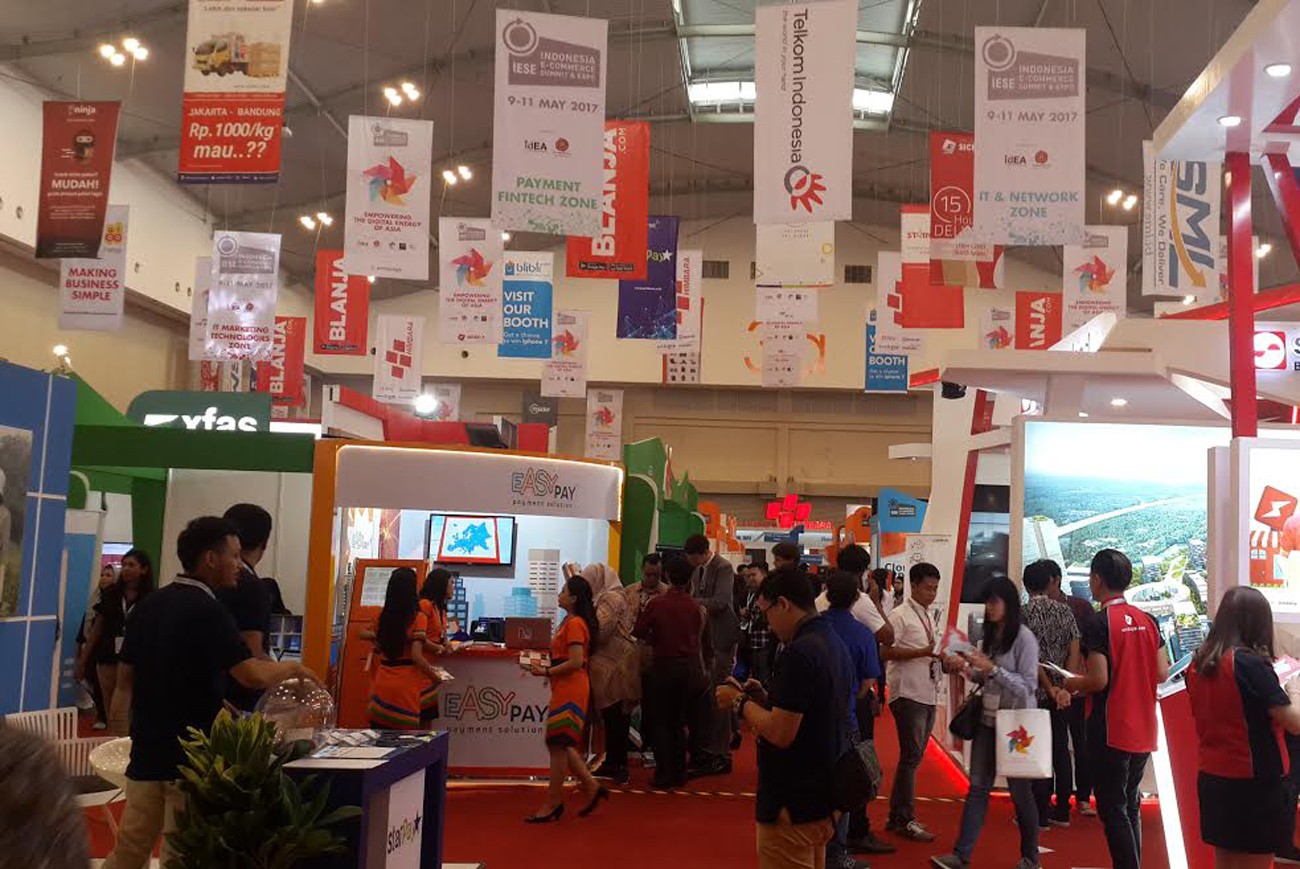Popular Reads
Top Results
Can't find what you're looking for?
View all search resultsPopular Reads
Top Results
Can't find what you're looking for?
View all search resultsThe elusive 7 percent: Major reform required in Indonesia to boost e-commerce growth
There are numerous reforms that need to be pursued by the government in order to further encourage and assist e-commerce growth in Indonesia.
Change text size
Gift Premium Articles
to Anyone
F
or Indonesia to reach its elusive 7 percent gross domestic product (GDP) growth target during the second term, the Joko “Jokowi” Widodo government will have to implement some difficult reforms. These would need to include changes in e-commerce sector governance, which the government has identified as one of the main ways in which it could reach this GDP target by 2025.
Indonesia has started to attract large investments in its domestic e-commerce sector by big Chinese tech companies, which are strenuously trying to cultivate economic opportunities in the archipelago. Investments by Alibaba, Tencent and JD.com indicate the growing importance of Indonesia as an emerging player in the global e-commerce market. Alibaba chairman Jack Ma was even asked to sit on an Indonesian government steering committee for e-commerce to advise on tax, cyber security and human resources policy.
In 2016 Indonesia released its 14th economic reform package that included an initial e-commerce roadmap. This eight-part e-commerce policy was aimed at stimulating the economy and providing 1000 “technopreneurs” by 2020. A 2019 Axiata and A.T Kearney report has found that, while Indonesia has a positively ambitious vision to be the largest digital economy in ASEAN by 2020, it still lacks a comprehensive national narrative or roadmap to achieve this.
The same report found that digitization could add up to US$1 trillion to the GDP of ASEAN states by 2025, which is a 20-30 percent increase from current levels. Even a small slice of this pie would represent a significant windfall for the Indonesian economy. To take advantage of this opportunity the Indonesian government needs to further invest in infrastructure, both physical and digital, liberalize markets, reform tax arrangements and further reduce red tape.
There are numerous reforms that need to be pursued by the government in order to further encourage and assist e-commerce growth in Indonesia. A thriving e-commerce sector needs good delivery logistics and shipping processes so that customers can receive their purchases in a timely manner. While Indonesia has improved in the World Banks Logistics Performance Index (LPI) from a ranking of 63 in 2016 to 46 in 2018, it still suffers from some of the highest logistical costs in ASEAN – invariably raising prices for Indonesian consumers and constraining healthy competition.
To enable improvements in logistics the government needs to address overly lengthy trade clearance processes at borders and ports, as well as put in place policies that attract new companies to the market, so as to help reduce supply chain bottlenecks and increase competition. A 2018 McKinsey report has suggested one way the government could attract new companies to the e-commerce market would be to provide assistance in finding land and building warehouses.
Like many developing economies Indonesia suffers from brain drain. Many of its young and highly qualified workers leave Indonesia for more promising opportunities elsewhere. The government needs to do more to incentivize and encourage these talented and capable people to stay and do business in Indonesia.
Credit card penetration in Indonesia is also the lowest out of all the ASEAN states, which represents another barrier to further e-commerce growth. 99 percent of all transactions in Indonesia by volume are done in cash, and this is holding back further engagement in online marketplaces thus stifling e-commerce growth. Indeed the McKinsey report also found that only 49 percent of Indonesian citizens have access to financial services.
To protect citizens, improve their access to financial services and encourage engagement in the e-commerce sector, the government needs to step up its digital literacy programs and improve cyber security, to help facilitate a safer online trading environment for both individuals and companies.
A 2014 study into the security readiness Indonesian government institutions found that only three per cent had adequate security. While this has since improved, Indonesia is still in desperate need of a comprehensive cyber security strategy to help provide a cyber security roadmap for both government institutions and the private sector.
As for digital literacy the Ministry of Commutations and Information has spearheaded multiple positive developments. These include the introduction of Stophoax.id, a disinformation and hoax identification tool, and SiberKreasi or the Creative Cyber Movement - Indonesia’s national digital literacy initiative.
More needs to be done however including in Indonesia’s classrooms, so that younger generations can be equipped with the skills that will enable them to not only participate in the digital economy, but to also be more politically savvy and less vulnerable to the high levels of disinformation that pervades Indonesia’s public discourse.
This investment would have a “dual use” benefit and along with the other reforms mentioned above would lay the foundations for Indonesia to realize increased GDP growth.
***
The writer is a Master’s candidate at the Australian National University’s (ANU) Strategic and Defense Studies Center. He was an ANU research intern with the Australian Strategic Policy Institute (ASPI) in 2018, and conducted research on Indonesian cyberspace and cyber policy for ASPI’s International Cyber Policy Center.










